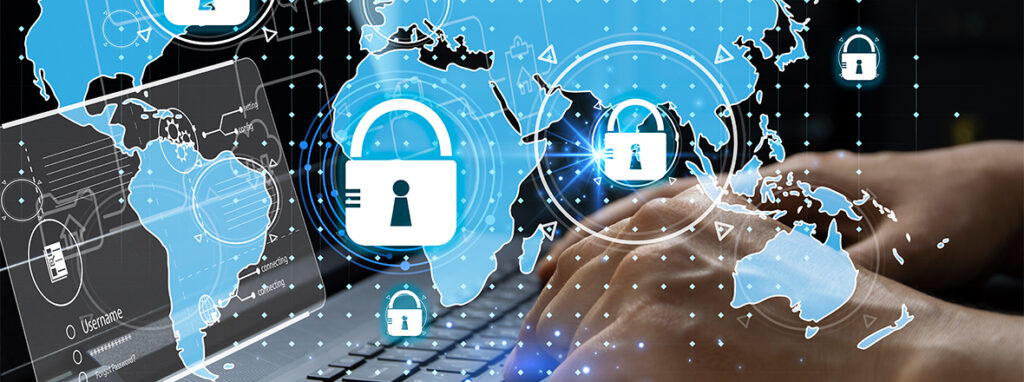New technologies provide companies with numerous capabilities, including enhanced strategy-building possibilities which are informed by public browsing data. As a result, the use of personal data has become a frequent reality for consumers, brands, and all those who are part of the customer journey.
In 2018, a series of requirements for the use and treatment of personal information were established to protect data and provide sanctions against those who don’t comply. This was implemented in the Brazilian General Law for the Protection of Personal Data (LGPD), an incredibly important piece of legislation for both organizations and consumers. Below we discuss its relevance and significance:
What is LGPD and why is it important?
Federal Law No. 13,709/2018, better known as the General Personal Data Protection Law, or LGPD, is a law that regulates the processing of personal data and the responsible organizations and individuals have for its management. It aims to ensure control over sensitive consumer information, directly affecting companies of different industries and sizes, which must adapt to the legislation’s requirements.
The law lists a series of objectives that positively impact both companies and consumers, by granting greater transparency and privacy in the treatment of their data. Thus, the LGPD aims to ensure:
- Respect for privacy;
- Informative self-determination;
- Freedom of expression, information, communication and opinion;
- The inviolability of the intimacy of honor and image;
- Economic and technological development and innovation;
- Free enterprise, free competition and consumer protection;
- Human rights, the free development of personality, dignity and the exercise of citizenship by natural persons.
What is the impact of the law on companies?
As we can see, the LGPD brings great impact to organizations. See more below:
Improved customer relationship
The LGPD requires companies to receive authorization from individuals in order to use and manipulate their data. In addition, companies are obligated to explain how and why they will be using their customers’ information. Consequently, consumers are granted greater knowledge about the use of their private data, while the mandatory transparency brings greater credibility to businesses.
Increase in legal certainty
The extraterritorial guarantee of privacy and security of information provided by the LGPD ensures that regardless of where data has been collected, it is protected. Furthermore, the alignment of the LGPD with legislation of other countries, guarantees Brazil and its businesses a positive reputation for a secure data environment, regardless of geographic hurdles or issues.
Valuing marketing and increasing your productivity
The LGPD requires that for data to be collected and processed, the data itself must comply with the purpose principle, that is: it must have a specific objective. This reduces the amount of irrelevant collected information, ensuring instead that only quality data is amassed. Consequently, businesses are able to make more assertive and intelligent business decisions, which achieve an organization’s objectives in an informed manner.
What is the impact of LGPD for consumers?
The LGPD was created especially to ensure the protection of personal data, safeguarding the fundamental rights of individuals. This legislation is particularly significant today as cyber crimes increase and data is intercepted, stolen and leaked. By requiring businesses to secure the personal information of their customers, the law encourages businesses to make security and data protection priority concerns, ensuring greater online safety for all parties.
How should companies adapt to the LGPD?
See our tips below on how companies can fully embrace the LGPD and it’s important for both organizations and the public:
Create a GDPR compliance committee
Electing a multi-skilled team who is responsible for implementing and monitoring the application of LGPD and GDPR will ensure that it is applied in the most optimal way. With committee members who are experts across fields such as technology, law, human resources, marketing, and more, a company is able to apply the law thoroughly and effectively, across the entire organization.
Map the flow of data across the enterprise
Surveying and charting the data across a company is one of the most important steps to comply with the law, and consists of understanding the data lifecycle, listing, among other information:
- What personal information is collected and through which channels;
- Storage location;
- Who has access to the information;
- Who manipulates and uses the data;
- What information is shared with other collaborators (such as suppliers).
Ensure transparent communication with your customers
Transparency, one of the principles of the LGPD, must guide all decision-making in relation to the use and processing of personal data. In order for this to be carried out effectively, the purpose of using this information must be clearly established and communicated to the owner: the consumer. A beneficial and trusted relationship between business and consumer that truly implements transparency, must include thorough and maintained communication, through which a consumer can request any information about the use of their data.
The General Personal Data Protection Law was created when the digital environment was already being dominated by the implementation of new technologies. The law encourages an ethical attitude of respect for the rights of individuals and the protection of information, in addition to being a legal obligation for companies.
Be aware and adhere to the LGPD.



